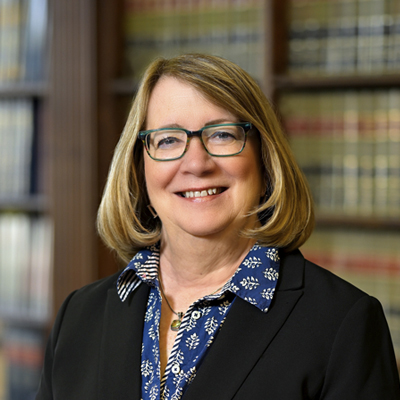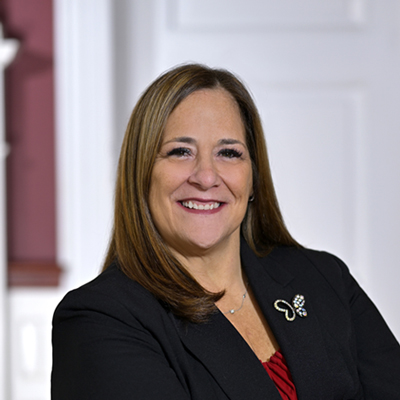Experienced Custody Lawyers in Montgomery and Bucks County, PA
Call our law firm if you're looking for a custody lawyer near you in Norristown or Doylestown. Our lawyers know Pennsylvania custody laws and can help support you during custody. You can also review our tips for helping you with your custody case. Our family law team covers numerous practice areas and can help you with divorce, spousal support, and mediation.
Pennsylvania Focuses on the Child's Best Interests
Judges rule on custody issues according to the child's best interests. As a result, their ruling takes into account various factors when deciding. So talking with a custody lawyer familiar with Pennsylvania custody law is important.
Those factors include:
- Which party is more likely to encourage and permit frequent and continued contact between the child and another party?
- Is there a history of child abuse?
- Which party can better provide adequate physical safeguards and supervision of the child?
- What duties do each party perform on behalf of the child?
- Stability and continuity related to the child's education, family, and community life.
- The availability of extended family.
- The child's sibling relationships.
- Does the child have a preference regarding the parent?
- Have there been parental attempts to turn the child against the other parent?
- Which party is more likely to maintain a loving, stable, consistent, and nurturing relationship with the child?
- Which party is more likely to attend to the child's daily physical, emotional, developmental, educational, and unique needs?
- What is the proximity of the residences of the parties?
- Each party's availability to care for the child or ability to make appropriate child-care arrangements.
- What is the level of conflict between the parties? Is there a willingness and ability of the parties to cooperate?
- Does either party or member of the party's household have a history of drug or alcohol abuse?
It's essential to note that courts don't consider parent gender in their decision.
Child Custody Order
After deciding on the custody arrangement, the judge issues an order. A child custody order in Pennsylvania is legally binding. It documents the specific terms and conditions of the custody arrangement for a child. You can file a Petition for Reconsideration within 30 days of the custody aware. You must address if you believe an error was made or if essential information wasn't considered. Talk with a custody lawyer to determine the best course of action.
Conditions within a custody order generally include:
- Custody Type and Allocation
- Custody and Visitation Schedule
- Child Support
- Travel and Relocation
- Communication Between Parents
- Decision-Making Authority
- Grandparent Visitation
- Parental Conduct and Restrictions
Custody awards are permanent orders until modified or until a child reaches age 18. However, it's rare for one custody order to last through a child's entire 18 years. As parents' circumstances change, custody orders typically change to support the family's needs.
As a result, Pennsylvania law allows either parent to seek changes to a custody order. Again, the judge will consider the child's best interests. You can work with a custody lawyer to modify a custody order.
A Custody Lawyer Can Share Insights on Custody Types in PA
There are two types of custody in PA -- physical and legal.
Physical Custody
This custody arrangement refers to where the child resides and spends their time. In Pennsylvania, physical custody can be either sole or shared.
With sole physical custody, one parent has primary physical custody, and the child resides exclusively with that parent. The non-custodial parent may have scheduled visitation or partial custody rights. Typically, courts shy away from sole custody arrangements unless there are issues like substance abuse. Talk to a custody lawyer if you foresee problems impacting your outcome.
With shared custody, both parents have significant and roughly equal periods of physical custody. The child spends substantial time with each parent, often on a rotating schedule. Courts prefer this approach.
Courts can also award partial custody, where one parent receives primary custody and gets most of the parenting time. The non-custodial parent can spend time with the child based on a schedule. The court determines that schedule unless the parents can agree to one.
Legal Custody
Legal custody pertains to the right and responsibility to make significant decisions on behalf of the child. Those decisions typically include those related to education, healthcare, religion, and overall well-being. Similar to physical custody, legal custody can be sole or shared in Pennsylvania.
Sole legal custody gives one parent the exclusive right to make significant decisions for the child. The non-custodial parent may still have access to the child and receive information about the child's well-being. However, they do not have the authority to make significant decisions.
Conversely, shared legal custody gives both parents share equally in making important decisions for the child's upbringing and welfare. It requires a parenting plan focused on collaboration on essential matters affecting the child. Many people refer to shared legal custody as joint legal custody or joint custody.
A custody lawyer can offer tips on how to win custody battles.

Child Custody Involving Grandparents
Grandparents have the easiest time qualifying for the standing of third-party custody options. A grandparent of the child can be eligible for standing to have primary physical and legal custody of a child if:
- The grandparent's relationship with the child resulted from parental consent or through a court order;
- The grandparent accepts or is willing to assume responsibility for the child
- The grandparents meet one of the following conditions:
- The juvenile court declares the child to be dependent
- The child is substantially at risk due to parental abuse, neglect, drug or alcohol abuse, or incapacity
- For at least 12 consecutive months, the child has resided with the grandparent, excluding brief temporary absences. Subsequently, the parents remove the child from home and file an action within six months of the child's removal.
Pennsylvania law also permits grandparents the right to request partial physical custody (aka visitation) in the following three circumstances:
- If the grandchild's parent is deceased
- The grandchild lived with the grandparents for twelve consecutive months. Then, the grandparents filed an action within six months of the grandchild's removal from their home.
- The grandparent's relationship with the child began with parental consent or court order. Next, the child's parents commenced a custody proceeding. However, the parents disagree on whether the grandparents should have custody.
It's best to enlist the support of a custody lawyer to guide you through the process.
Talk with a Custody Lawyer If You're Facing a Dispute
Our custody lawyers handle cases in Montgomery and Bucks Counties. They can listen to your concerns, review the legalities, and provide appropriate legal counsel. So call our Norristown or Doylestown law offices to get your needed help.
In some instances, compromise or mediation can address custody in Pennsylvania. We have family lawyers available to help with that process.




